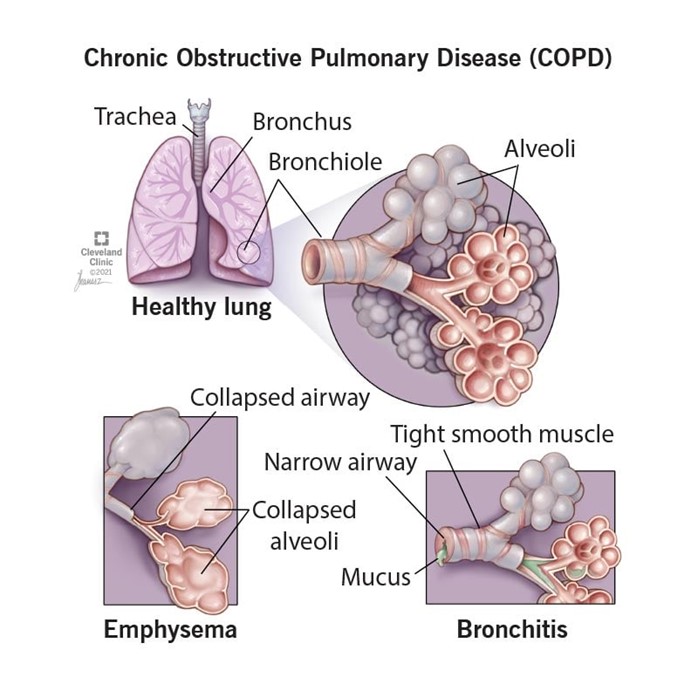A nurse is preparing to administer Ringer's lactate by continuous IV infusion at 120 mL/hr. The drop factor of the manual IV tubing is 10 gtt/mL. The nurse should set the manual IV infusion to deliver how many gtt/min? (Round the answer to the nearest whole number. Use a leading zero if it applies. Do not use a trailing zero.)
The Correct Answer is ["20"]
- To find out how many gtt/min to set for a manual IV infusion, we need to use this formula: gtt/min = (mL/hr x drop factor) / 60
- In this formula, mL/hr is the rate of infusion in milliliters per hour, drop factor is the number of drops per milliliter for a specific IV tubing, and 60 is the number of minutes in an hour.
- We plug in the given values into this formula: gtt/min = (120 mL/hr x 10 gtt/mL) / 60
- We simplify and solve this equation: gtt/min = (1200 gtt/hr) / 60
- We divide both sides by 60: gtt/min = 20 gtt/hr
- We round off to the nearest whole number: gtt/min = **20**
- We add a leading zero if needed: gtt/min = **20**
- We do not add a trailing zero: gtt/min = **20**
Nursing Test Bank
Naxlex Comprehensive Predictor Exams
Related Questions
Correct Answer is C
Explanation
Choice A: The social worker is not the correct answer because they are not legally responsible for obtaining informed consent for an invasive procedure. The social worker is a professional who provides psychosocial support and advocacy for clients and families, such as counseling, referrals, or discharge planning.
Choice B: The nurse is not the correct answer because they are not legally responsible for obtaining informed consent for an invasive procedure. The nurse is a professional who provides direct care and education for clients and families, such as assessment, medication administration, or teaching. However, the nurse can assist the physician in obtaining informed consent by witnessing the client's signature, verifying the client's understanding, or documenting the process.
Choice C: The physician is the correct answer because they are legally responsible for obtaining informed consent for an invasive procedure. The physician is a professional who diagnoses and treats clients and families, such as performing surgery, prescribing medication, or ordering tests. The physician must explain the purpose, benefits, risks, alternatives, and consequences of the procedure to the client and obtain their voluntary agreement before proceeding.
Choice D: The unit secretary is not the correct answer because they are not legally responsible for obtaining informed consent for an invasive procedure. The unit secretary is a staff member who performs clerical and administrative tasks for the unit, such as answering phones, filing records, or scheduling appointments.
Correct Answer is D
Explanation
Choice A: A 26-year-old client who has migraine headaches at the start of each menstrual cycle is not the correct answer because they do not have a contraindication for receiving oral contraceptives. Oral contraceptives are pills that contain synthetic hormones (estrogen and progestin) that prevent ovulation and pregnancy. They can also help reduce menstrual cramps, bleeding, and migraines in some women. However, oral contraceptives may increase the risk of stroke in women who have migraines with aura (visual disturbances), so they should be used with caution and under medical supervision.
Choice B: A 28-year-old client who has a history of pelvic inflammatory disease is not the correct answer because they do not have a contraindication for receiving oral contraceptives. Pelvic inflammatory disease is an infection that affects the female reproductive organs, such as the uterus, fallopian tubes, or ovaries. It can be caused by various bacteria, such as chlamydia or gonorrhea, and can lead to infertility, ectopic pregnancy, or chronic pelvic pain if left untreated. Oral contraceptives can help prevent pelvic inflammatory disease by creating a thick cervical mucus that blocks the entry of bacteria into the uterus.
Choice C: A 32-year-old client who has benign breast disease is not the correct answer because they do not have a contraindication for receiving oral contraceptives. Benign breast disease is a term that refers to various noncancerous conditions that affect the breast tissue, such as fibrocystic changes, fibroadenomas, or mastitis. They can cause symptoms such as breast pain, tenderness, or lumps. Oral contraceptives can help reduce the symptoms of benign breast disease by regulating the hormonal fluctuations that influence breast tissue growth.
Choice D: A 38-year-old client who reports smoking one pack of cigarettes every day is the correct answer because they have a contraindication for receiving oral contraceptives. Smoking is a habit that involves inhaling tobacco smoke, which contains harmful substances such as nicotine, tar, or carbon monoxide. Smoking can increase the risk of various diseases such as lung cancer, chronic obstructive pulmonary disease (COPD), or cardiovascular disease. Oral contraceptives can further increase the risk of cardiovascular disease in smokers, especially those who are over 35 years old, by increasing blood pressure, cholesterol levels, and clotting factors. Therefore, oral contraceptives are not recommended for smokers and alternative methods of contraception should be used instead.

Whether you are a student looking to ace your exams or a practicing nurse seeking to enhance your expertise , our nursing education contents will empower you with the confidence and competence to make a difference in the lives of patients and become a respected leader in the healthcare field.
Visit Naxlex, invest in your future and unlock endless possibilities with our unparalleled nursing education contents today
Report Wrong Answer on the Current Question
Do you disagree with the answer? If yes, what is your expected answer? Explain.
Kindly be descriptive with the issue you are facing.
